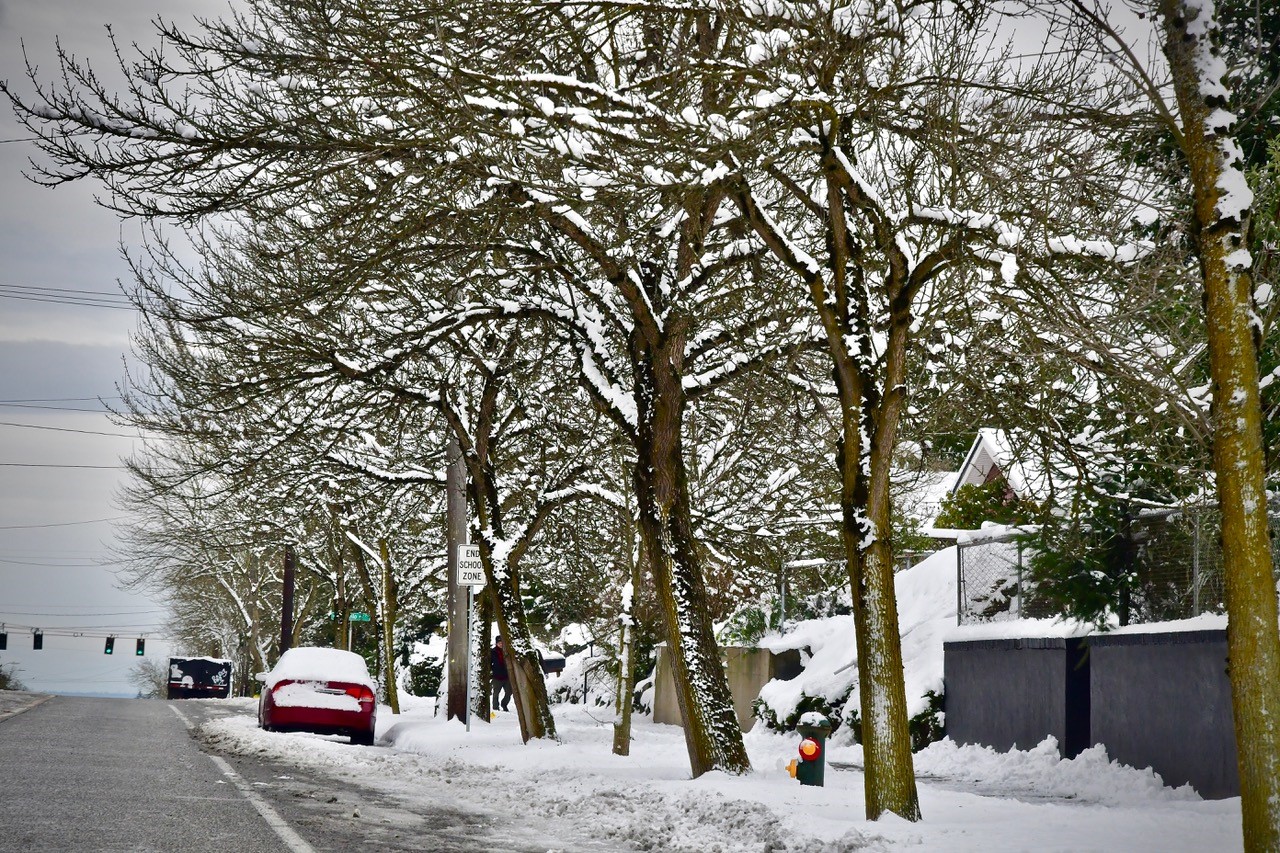Snowpocalypse: Caring for Others During Severe Weather

The snow events that took place throughout King and neighboring counties last month were unusual, to say the least. February 2019 was the snowiest month in the greater Seattle area in 50–70 years (that’s the range given in recent news reports). Temperatures dropped into the 20s and teens, with wind chill, and more than 14″ of snow dropped from the sky.
I want to thank the caregivers—the professional caregivers who struggled through snow, wind, slush, and flooding to provide the hands-on attention and care their clients need for basic survival, and an even greater number of unpaid family caregivers who, whether they live with their loved one who needs care or have to travel through severe weather, provided similar services, often for even longer hours. We didn’t see your photos in the newspaper or hear you interviewed on TV. You did what you needed to do to make sure that your responsibilities to your client or your loved one were met. I sing your praises!
I am grateful for the navigation teams that Seattle Human Services Department, King County, and others had working in the field throughout the snow storm, providing resources—including dry socks and food—and offering transportation to emergency shelters. Warming stations and additional overnight emergency shelters were established. Staff was provided by multiple departments—not just those that typically perform this type of work—and by community partners such as the Urban League of Metropolitan Seattle.
It was comforting to read that people who had never reached out for help before were welcomed at a homeless resource fair over President’s Day weekend (“Winter storms give Seattle an opportunity to connect with homeless people they’ve never reached before” Seattle Times, 2/16/19). As someone who has a roof over my head, food in my cupboard, and heat, it’s not always easy to understand the causes of homelessness. It’s truly difficult to determine solutions. Based on anecdotes from ADS staff who worked at the homeless resource fair, some new clients were placed in housing and/or enrolled to receive other beneficial services. I know that events like that can make a difference.
Finally, I want to thank Aging and Disability Services staff and community partners who coordinated emergency information, ensuring before and during the storms that clients knew who to contact if there was an unexpected problem or if they needed food or other supplies. This was especially important for clients who have mobility limitations or would face a crisis if the power went out (e.g., people who depend on oxygen or respirators).
Snowmageddon, Snowpocalypse, Snowzilla—we give lots of names to snow storms, often in fun. We gripe about the traffic and buy out the grocery stores when the first few flakes fall. In fact, there are people who provide exceptional service to others in need during these times. I honor every one of the caregivers—whether unpaid or professional—and professional human services providers who make a difference for other people. It’s not fun—it’s extremely important—and I don’t know where we would be without you.
 Contributor Ava Frisinger chairs the Seattle-King County Advisory Council on Aging & Disability Services, which publishes AgeWise King County. She welcomes input from readers via e-mail (advisorychair@agewisekingcounty.org) as well as applicants for open positions on the council. For more information, visit www.agingkingcounty.org/advisory-council.
Contributor Ava Frisinger chairs the Seattle-King County Advisory Council on Aging & Disability Services, which publishes AgeWise King County. She welcomes input from readers via e-mail (advisorychair@agewisekingcounty.org) as well as applicants for open positions on the council. For more information, visit www.agingkingcounty.org/advisory-council.
Photo at top of page by Patrick Robinson © 2019 www.patrickrobinson.net
This article originally appeared in the March 2019 issue of AgeWise King County.
![Aging & Disability Services for Seattle & King County [logo]](https://www.agingkingcounty.org/wp-content/themes/sads/images/seattle-ads-logo.png)